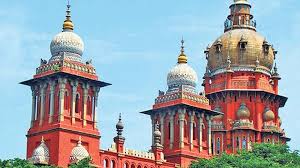Anna University sexual assault case: Rape convict handed life sentence without remission by Chennai court

The Chennai Mahila Court recently sentenced the convict in the Anna University sexual assault case to life imprisonment. The court ordered that the convict must serve at least 30 years without remission. This ruling sends a strong message that sexual crimes will face severe punishment.
Incident Overview
On December 23, 2024, A. Gnanasekaran, a biryani vendor from Chennai, entered Anna University’s campus. There, he sexually assaulted a 19-year-old female student and her male companion. The assault happened in a secluded area inside the campus. Disturbingly, Gnanasekaran recorded the attack on video. Later, he used the footage to threaten and blackmail the victims.
The victims immediately reported the crime to the police. Authorities arrested Gnanasekaran on December 25, 2024. Police acted swiftly, which helped build a strong case.
Court Proceedings and Verdict
The Mahila Court handled the trial with care and diligence. Prosecutors presented solid forensic evidence, witness testimonies, and the video recording. The court found Gnanasekaran guilty of 11 charges. These included rape, kidnapping, sexual harassment, and blackmail.
On May 28, 2025, the court sentenced him to life imprisonment without remission. The convict must serve a minimum of 30 years in jail. The court also fined him ₹90,000.
The court’s decision to deny remission is rare. Usually, remission is given unless the case involves multiple victims or minors. This judgment reflects the crime’s seriousness and the court’s intent to deter similar offenses.
Legal Importance
This verdict sets a significant legal precedent. It shows the judiciary’s zero tolerance for sexual crimes on university campuses. Sexual violence in educational settings remains a big concern. Many victims hesitate to report incidents due to fear or stigma.
The court’s firm ruling encourages survivors to come forward. Legal experts say the case proves that courts can deliver swift and strong justice. It also highlights the importance of collecting thorough forensic and documentary evidence in such cases.
Reactions from Public and Politicians
The verdict drew wide praise from women’s rights groups and activists. Many called it a victory for justice and a message to protect women. The ruling has inspired hope among sexual assault survivors nationwide.
However, political controversy arose when opposition parties alleged the accused had links with the ruling DMK party. Chief Minister M.K. Stalin denied this. He clarified that Gnanasekaran was a supporter, not a member, of the DMK. The government reaffirmed its commitment to impartial justice.
Impact on Campus Safety
The case sparked renewed focus on safety in educational institutions. Many colleges and universities have been urged to improve security measures. Experts recommend better lighting in isolated areas and installing more CCTV cameras. Establishing safe zones and anonymous reporting channels can help protect students.
Experts also call for sexual education programs to raise awareness. Such programs empower students to identify and report misconduct. Universities should create committees and counseling centers to address complaints quickly and sensitively.
The Need for Timely Justice
The Anna University case highlights how critical timely action is. Quick police response, fast investigation, and prompt court rulings reduce victim trauma. Delays often discourage survivors from reporting crimes.
The smooth handling of this case serves as a model for future sexual assault trials. It shows that the justice system can protect victims and punish offenders efficiently.
Moving Forward
Although the verdict provides some relief, challenges remain. Preventing sexual violence requires continuous effort from all sectors. Governments, universities, and communities must collaborate closely.
Policymakers should mandate regular safety audits and improve campus infrastructure. Training security staff and involving students in safety planning are essential steps. Society must also fight the culture of silence and victim-blaming around sexual crimes.
Creating safe educational environments will require education, advocacy, and support for survivors. Only then can students truly feel secure and respected.
Conclusion
The life sentence without remission in the Anna University sexual assault case marks a turning point. The court showed that it will act decisively against sexual violence. This verdict brings justice to the victims and warns offenders.
The case also reminds us that campuses must be safe spaces for all students. Prompt legal action and stronger institutional safeguards are vital. By learning from this case, India can work towards a future where students can study without fear.






